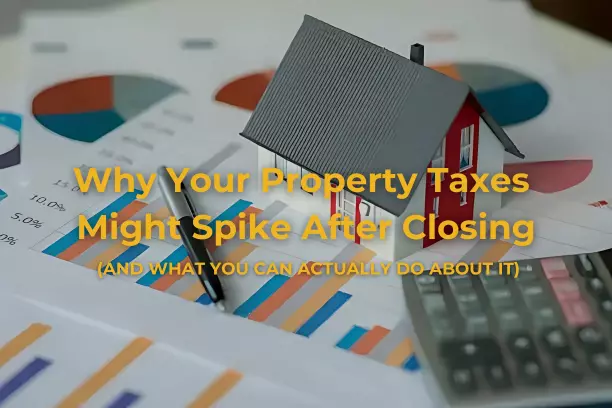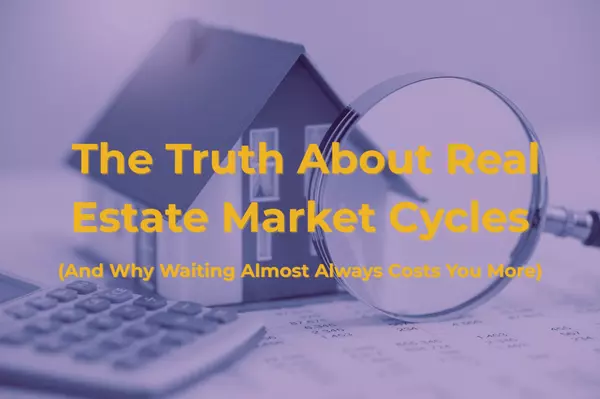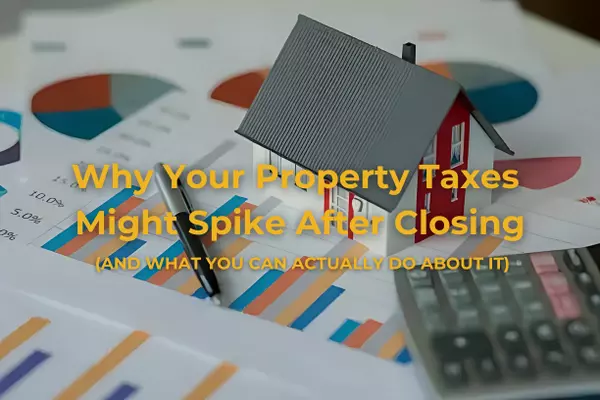May 2025: Why Your Property Taxes Might Spike After Closing (And What You Can Actually Do About It)

Here’s a nasty surprise more and more buyers are running into, especially in New Hampshire. You close on a property, the town reassesses it based on your purchase price, and suddenly your taxes double. No warning. No gradual climb. Just sticker shock.
This post-closing reassessment trend kicked off during COVID and hasn’t slowed down. It’s especially rough in New Hampshire, where there’s no income or sales tax, so towns rely heavily on property taxes to fund everything. If you just bought a property and the assessed value shoots up, you’re not alone. And unfortunately, in many cases, there’s not much you can do.
Let’s break down how it works, what to expect, and when it’s actually worth fighting back.
How Property Taxes Work Without Bureaucrat Speak
Across Massachusetts, Maine, and New Hampshire, property taxes are set at the local level. That means different towns, different rules, and different reassessment schedules.
But the math is pretty simple:
- Your property gets assessed. That’s the town’s estimate of its value.
- That number gets multiplied by the local tax rate, also called a mill rate.
- You pay whatever that total comes out to. And yes, it adds up quickly.
Here Is The Math, Solve X. X = How Much You Get Screwed!
Say you bought a property in Manchester, New Hampshire, where the 2024 mill rate is $17.61 per $1,000 of assessed value.
Your property's assessed value was $200,000 when you bought it.
But after closing, the town reassesses it based on your purchase price of $400,000.
Here’s the difference:
Before reassessment
$200,000 × ($17.61 ÷ 1,000) = $3,522 per year in property taxes
After reassessment
$400,000 × ($17.61 ÷ 1,000) = $7,044 per year in property taxes
That’s a $3,522 increase, double your original bill, just because the town adjusted the assessed value to match your purchase price.
And if you’re running rental numbers or trying to build cash flow, that increase can wipe out your margins overnight.
What’s Really Happening Post-COVID
Since 2020, we’ve seen a big increase in towns reassessing properties right after they sell. Especially when the purchase price is higher than the previous assessed value. It used to be the exception. Now it’s the playbook.
In New Hampshire, this is hitting buyers the hardest. Property values have jumped over the past five years. And because the state doesn't collect income or sales tax, towns are leaning even harder on property taxes to fill the gap. We’ve seen new owners hit with assessments that double what the previous owner paid. That means double the taxes, instantly.
Quick Breakdown by State
Massachusetts
Assessments aim to match market value.
Revaluations happen every few years.
Some towns are more aggressive than others.
Maine
Assessed as of April 1 each year.
Some towns use old data, others update often.
Mill rates vary widely, even between neighboring towns.
New Hampshire
Full revaluations are required every five years, but reassessments happen constantly.
Most towns reassess right after sales.
No income or sales tax means towns depend almost entirely on property taxes.
Market Value vs Assessed Value
Market value is what you paid, or what someone else would.
Assessed value is what the town thinks your place is worth for tax purposes.
If your assessed value comes in higher than reality, you might be overpaying. But here’s the catch. If you paid that price, or more, it’s nearly impossible to win an appeal. Towns will point at the sale and call it done.
So What Can You Actually Do?
If your assessment feels unfair and you’ve got a real case—maybe the property was in rough shape or there are better comps out there—we can help you prepare a strong rebuttal. But in most cases, the smarter move is to know the reality going in.
Expect reassessment. Run the numbers with a tax increase baked in. Plan accordingly. It’s easier to prepare than to fight uphill later.
How to Keep Your Taxes in Check (When You Can)
File an appeal only when the numbers are clearly off. Bring comps, an appraisal, or photos.
Check for exemptions. Veterans, seniors, and a few other groups may qualify for relief.
Look into abatement or deferral programs. These are more common in lower-income brackets or for owner-occupants.
Know your town’s revaluation cycle. If a big update is coming, factor that into your purchase.
Talk to someone who’s been through it. We’ve helped a lot of people deal with reassessments and know where the lines are.
The Bottom Line
Property taxes are one of the biggest hidden costs in real estate. And right now, they’re anything but stable. If you’re buying in 2025, build your tax increase into the plan. If you’ve already been hit with a higher bill, let’s take a look and see if there’s anything you can do.
Want a free property tax checkup?
We’ll run the numbers and give you straight answers, no pressure.
[Click here to request your personalized review.]
Helpful Resources
Weare NH – Assessment vs Market Value
Wilton NH – Property Assessments
NH Municipal Association – Legal Q&A on Revaluations
Categories
Recent Posts










Leave a reply
